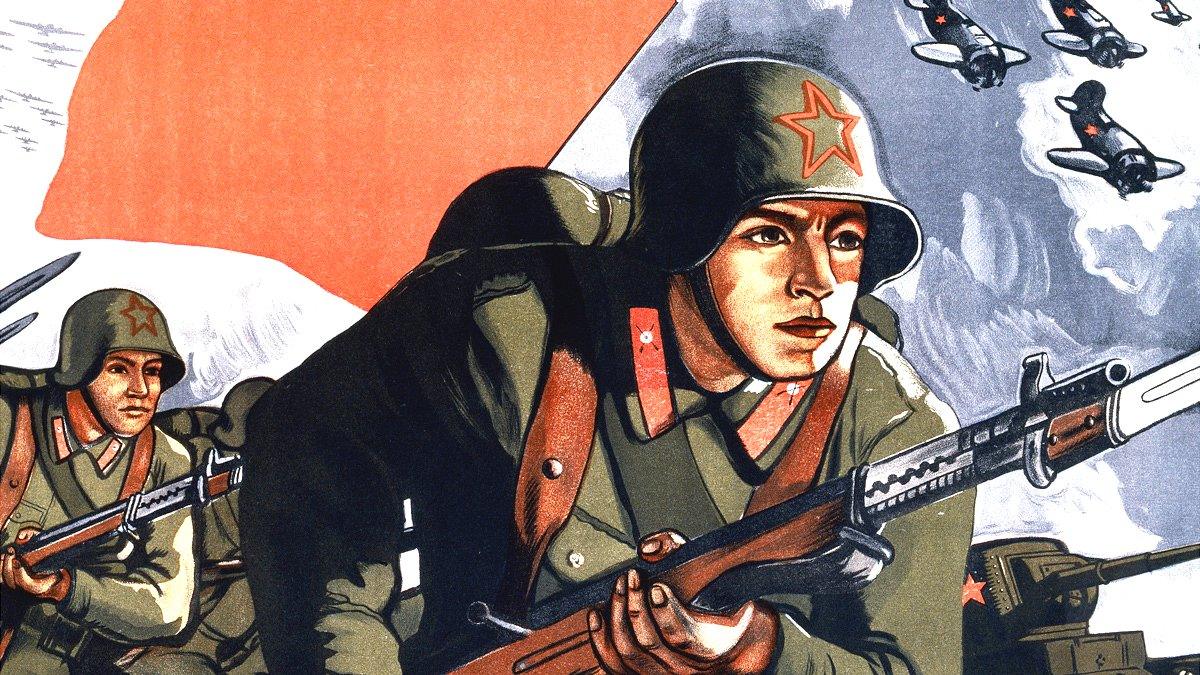Ukraine conflict: Your guide to understanding day 10
- Published
Watch: Locals clear out a shopping mall in Mariupol as the city remains under siege by Russian forces
On day 10 of the invasion, people hoping to escape besieged cities in Ukraine were forced back to shelters after plans for a brief truce went awry.
The BBC's Joel Gunter says Russian forces continued to shell the city of Mariupol on Saturday, despite agreeing to a ceasefire just hours earlier - throwing an attempted mass evacuation of civilians into chaos.
"I'm right now in Mariupol, I'm on the street, I can hear shelling every three to five minutes," said Alexander, a 44-year-old engineer and resident of the city.
The green corridor set up to get people out was not working, he said.
"I can see cars of people who tried to flee, and they are coming back. It is chaos."
Three hours after the ceasefire was supposed to begin, at 09:00 (07:00 GMT), Mariupol authorities announced they had postponed a planned mass evacuation because of the continued bombardment.


Putin likens sanctions to declaration of war
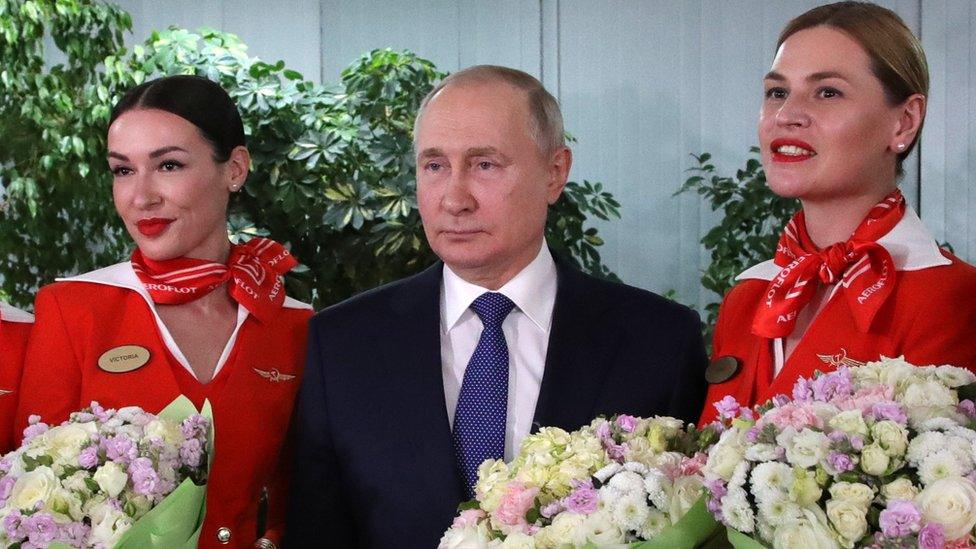
Mr Putin was meeting Aeroflot flight attendants near Moscow
Russian President Vladimir Putin has described sanctions imposed by Western nations over his invasion of Ukraine as "akin to a declaration of war".
"But thank God it has not come to that," he added.
Mr Putin also warned that any attempt to impose a no-fly zone over Ukraine would be seen as participation in the armed conflict.
And he rejected suggestions that he would introduce a state of emergency or martial law in Russia.
Mr Putin made the remarks while speaking to a group of flight attendants at an Aeroflot training centre near Moscow.

Russia's tactic: Meet resistance with more firepower
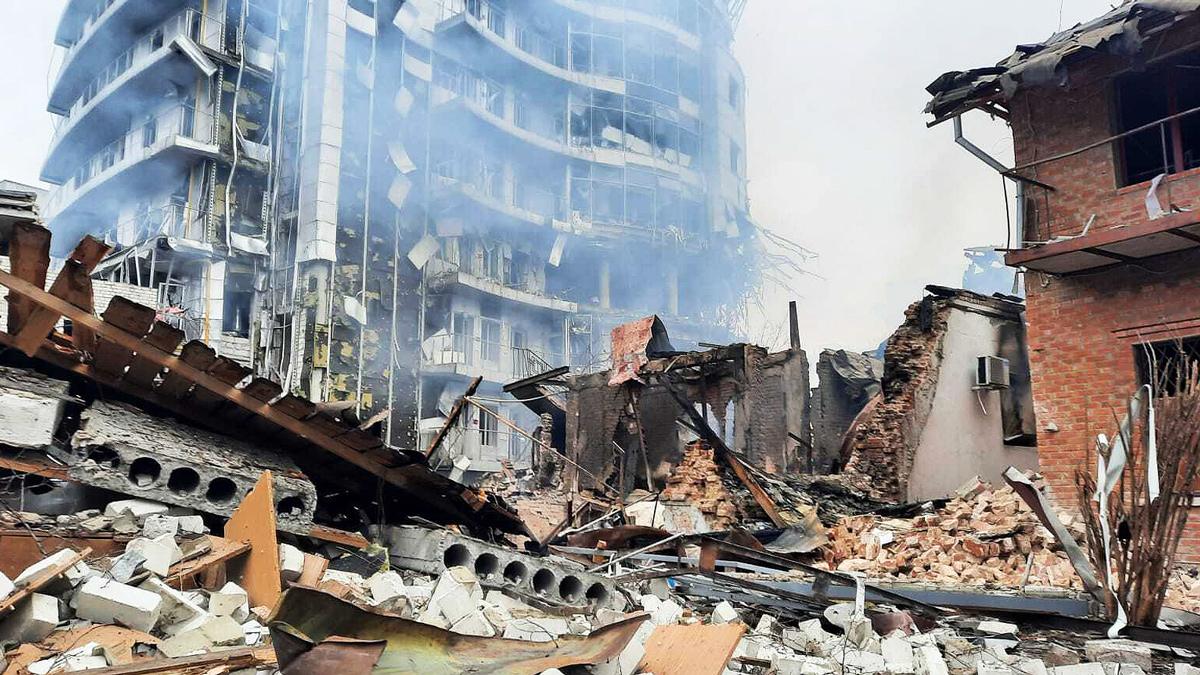
Buildings in Kharkiv in ruins after sustained Russian bombings
For one seasoned BBC correspondent, Russian tactics in Ukraine bring to mind other wars not so long ago.
The BBC's Jeremy Bowen, who covered the first Chechen war in 1994-95, says it could get much worse - that "Russia answers resistance with firepower".
Ukraine's second city, Kharkiv, has already felt the effects. So has Mariupol and other cities in the east.
"Russia's invasion has once again been slowed by logistical bottlenecks, tactical mistakes and terrified teenagers who had not been told they were going to war - as well as resistance as fierce as anything the Chechens offered in 1995," he writes.
Kevin Connolly, who was a correspondent for the BBC in Moscow in the 1990s, is also reflecting on history. He says there are moments when the tectonic plates of history shift beneath our feet and Europe is violently remade.
It is time to recognise that we are at such a moment, he adds. But drawing the right lessons from those big moments when everything changes is not easy.

Thousands march in Kherson against occupiers
In the Black Sea port of Kherson, the first Ukrainian city to fall to the Russians, protests against the occupiers have broken out.
About 2,000 people marched through the city centre, waving flags and singing the Ukrainian national anthem. They shouted patriotic slogans including "Russians go home" and "Kherson is Ukraine".
Kherson, a key port on the Black Sea and the Dnieper River, fell to Russian troops earlier this week.
Videos of the protest on social media show Russian troops firing into the air to deter the approaching crowd.
One local resident, Yevhen, told the BBC the protest was a march for freedom and Ukrainian independence.
"Kherson is Ukraine": Protests against Russian occupation take place in the only big city captured so far

In pictures: Fleeing devastation of Russian firepower
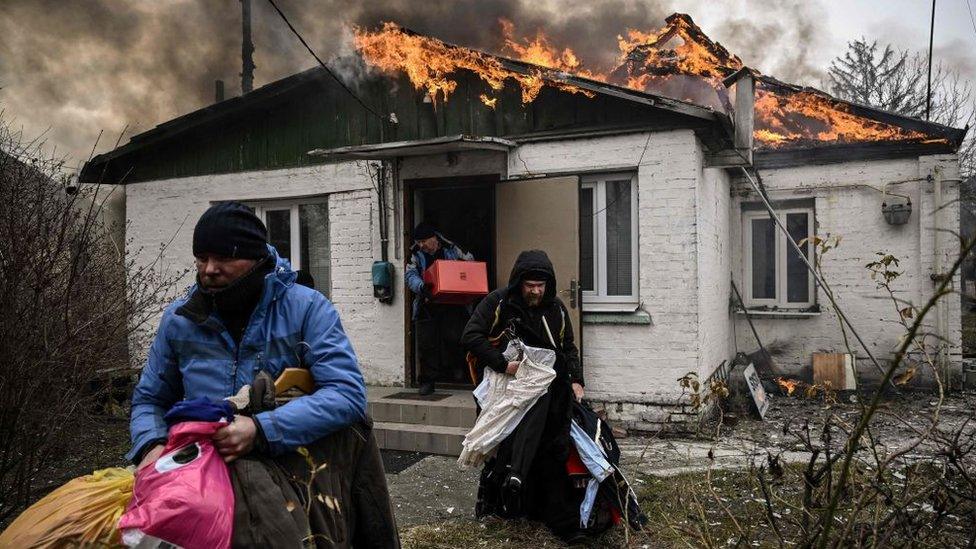
Ukrainian civilians, assisted by the country's military, are evacuating the small city of Irpin, which sits just 20km (12 miles) north-west of Kyiv.
The route is a difficult one, with many having to travel by foot along shelled roads and damaged bridges.
Artillery and air strikes have caused severe damage in the area, with at least one attack leaving a residential tower block almost completely destroyed.

More global firms suspend business in Russia
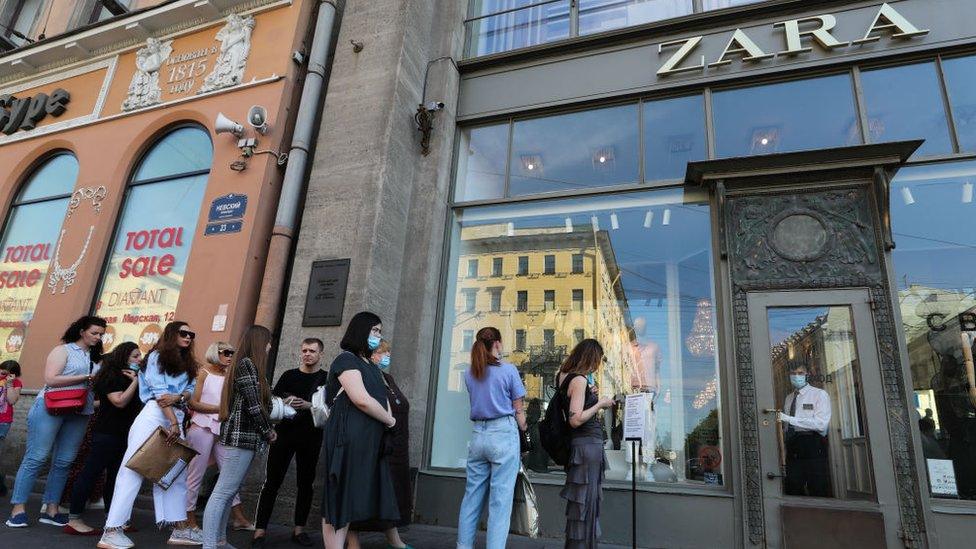
Russia's 86 Zara stores are to close from Sunday, including this one in St Petersburg
Zara, Paypal and Samsung are the latest international firms to suspend trading in Russia after it invaded Ukraine.
Zara's owner, Inditex, will shut all 502 stores of its eight brands, which also include Bershka, Stradivarius and Oysho, from Sunday.
Payment giant Paypal cited "violent military aggression in Ukraine" as the reason to shut down its services.
Samsung - Russia's top supplier of smartphones - is suspending shipments over "geopolitical developments". Other global brands, including Apple, H&M and Ikea, have already stopped selling in Russia.
The clothes store closures are expected to hit more than 9,000 of Inditex's employees who work in Russia.
The Spanish-owned business told the BBC it was drawing up a plan to support them.

Oligarchs: Who are the mega-rich Russians facing sanctions?
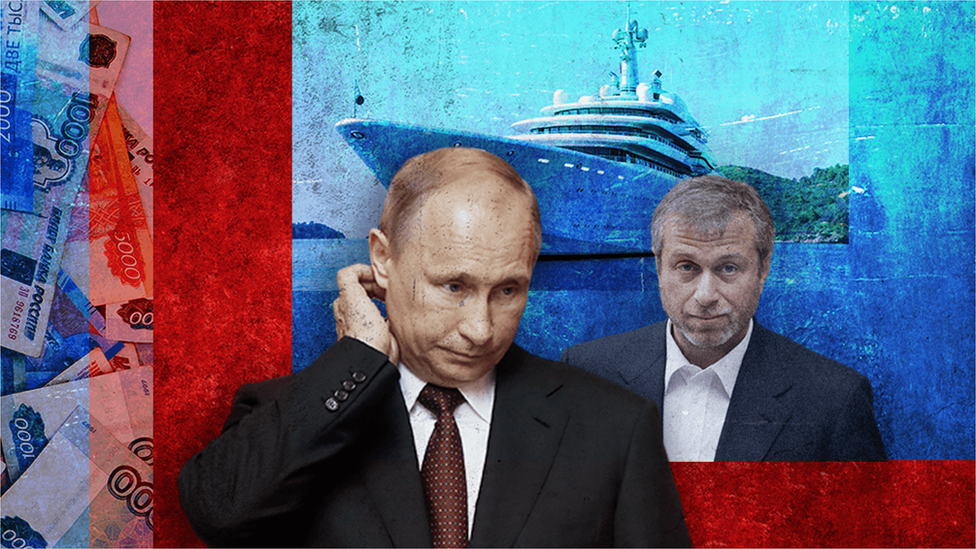
The billionaire businessmen perceived to be in President Putin's inner circle now find themselves scrambling to hold on to their assets amid the most comprehensive economic penalties imposed in the modern era.
Mr Putin has warned his allies for many years they should protect themselves against such measures, particularly as relations soured with the US and EU countries after the annexation of Crimea.
But while some took his advice and remained invested in Russia, others kept their money in palatial properties overseas and football clubs, and their companies remained listed on foreign stock exchanges.
Here's a list of some of the biggest and a rundown of what we know about them.

Russia attacks Ukraine: More coverage
THE BASICS: Why is Putin invading Ukraine?
SCENARIOS: Five ways the war in Ukraine might end
INNER CIRCLE: Who's in Putin's entourage, running the war?
IN DEPTH: Full coverage of the conflict

Related topics
- Published5 March 2022
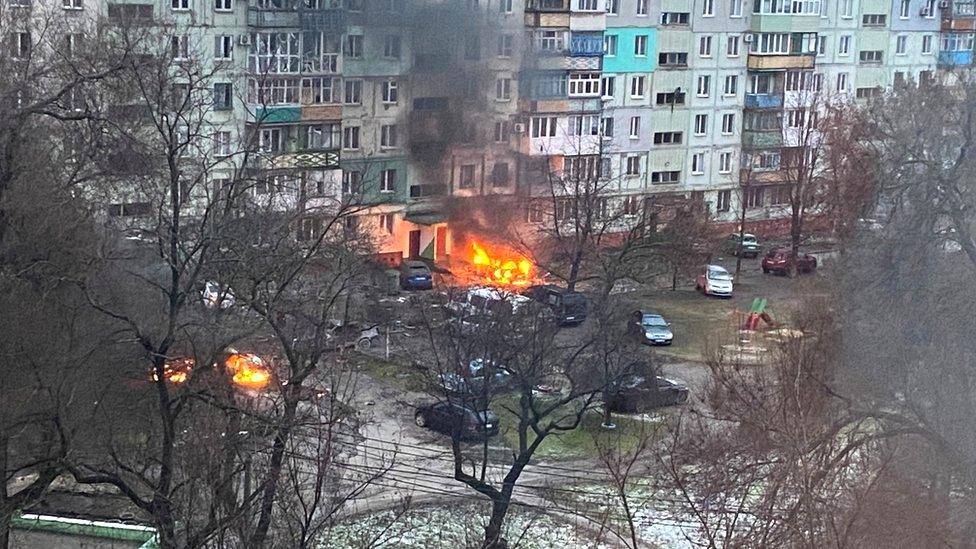
- Published5 March 2022
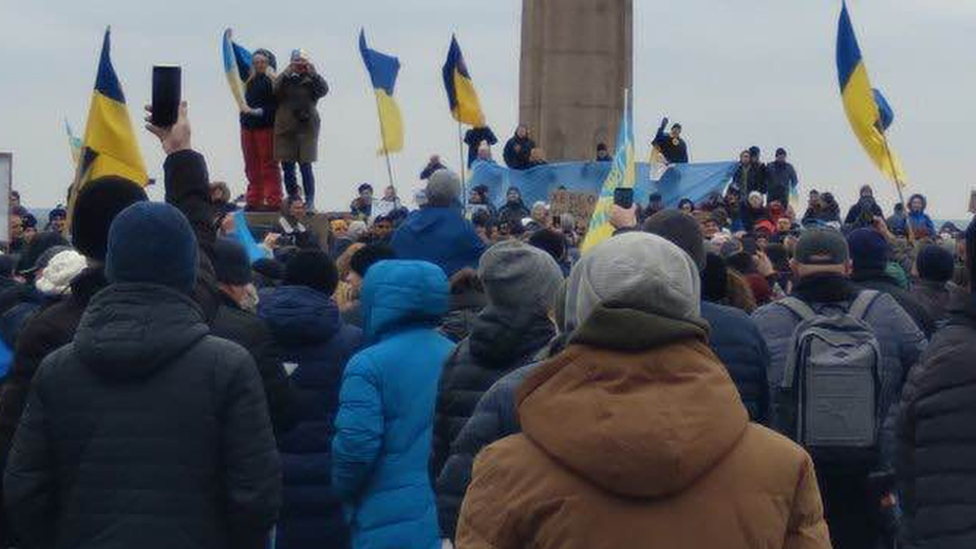
- Published5 March 2022
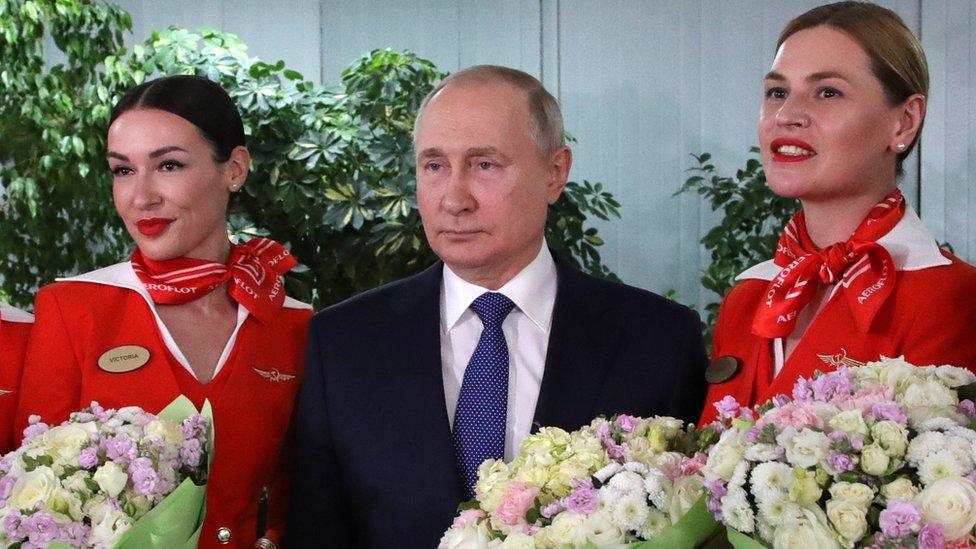
- Published5 March 2022
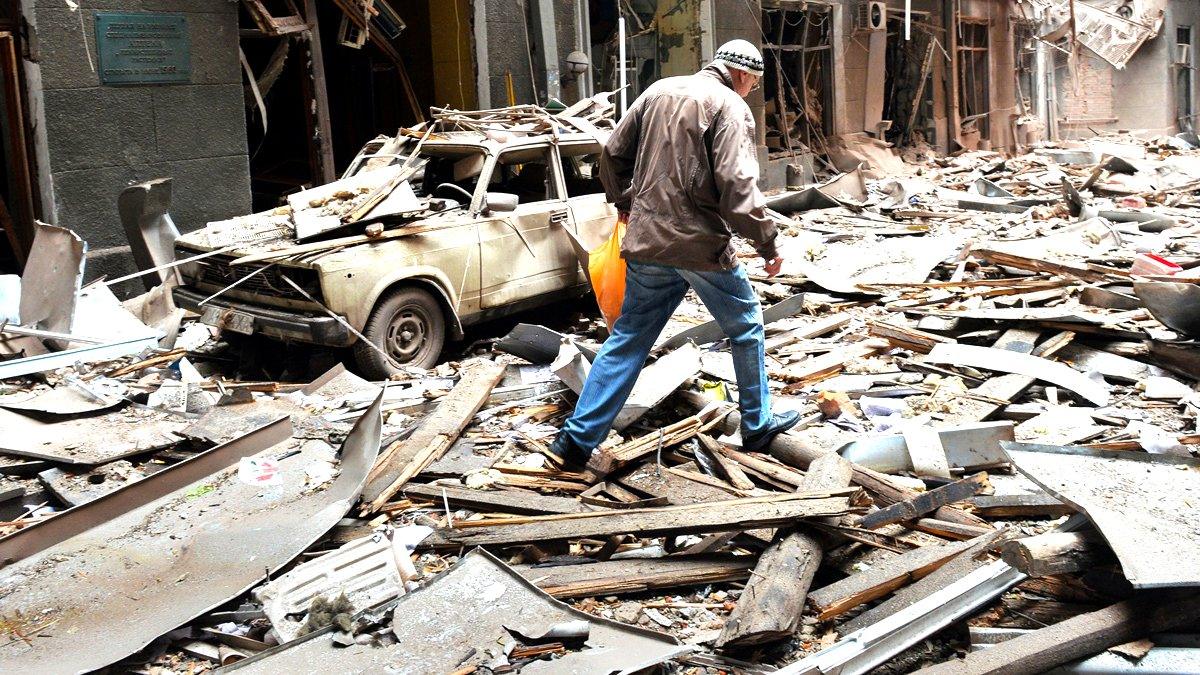
- Published5 March 2022
